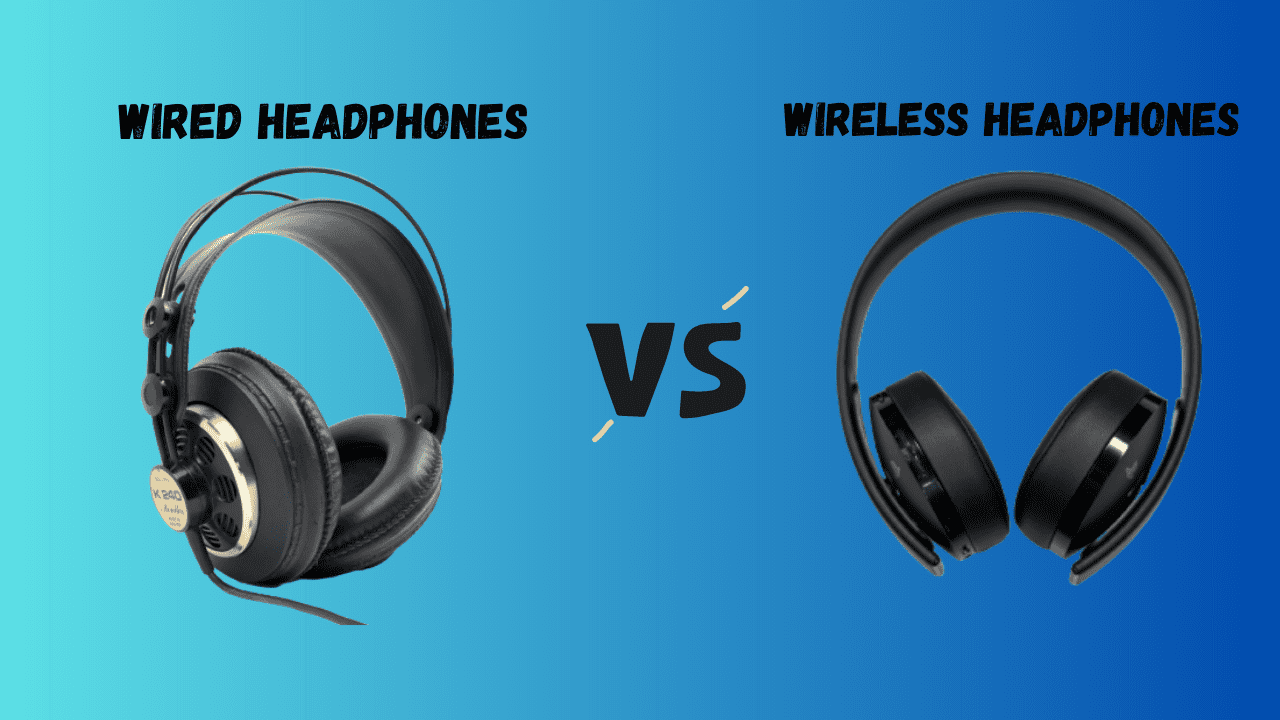Have you ever found yourself stuck in the age-old debate of wired headphones versus wireless? Sure, the convenience of wireless tech is hard to resist. But then, there’s also the comforting assurance of wires.
What if I told you that the question of safety might tip the scales in this comparison? Intriguing, isn’t it?
Let’s delve deeper into this complex terrain and find out – are wired headphones safer than wireless?
Body
- The Great Sound Chase
Before we weigh in on the safety aspect, let’s remember what we’re after – impeccable sound quality. The sound travels through a physical medium in wired headphones, maintaining its richness and intricacy. Comparatively, wireless headphones rely on Bluetooth technology.
While advancements have significantly enhanced Bluetooth sound quality, audiophiles might argue that it doesn’t quite hit the sweet spot as wired sound does. But does this difference make wired headphones the safer choice? Not necessarily.
- The “Wireless” Radiation Concern
One of the main concerns raised when discussing the safety of wireless headphones is radiation. Wireless devices, including headphones, use radiofrequency (RF) radiation to communicate. Hearing the word ‘radiation,’ our minds may rush to harmful images of nuclear reactors and X-rays, but hang on a second!
The RF radiation used by wireless devices is non-ionizing, meaning it doesn’t have enough energy to damage our cells or DNA.
The World Health Organization asserts that low-level, non-ionizing radiation poses minimal risks. While the debate around this topic is still ongoing, current research suggests that moderate use of wireless headphones is safe.
- Reliability And The Safety Factor
On the reliability front, wired headphones win the race, hands down. Have you ever been stuck with dead wireless headphones during an important call?
Or dealt with choppy audio because you were too far from the connected device? That’s where the steadfastness of wired headphones can feel like a safety blanket. Their consistency can indeed be a factor of ‘safety’ in specific scenarios.
- Physical Safety Considerations
Here’s another angle to ponder. Physical safety is just as important as any other. Have you ever got your wired headphones tangled or caught in something while on the move?
It’s easy to envision how this could lead to accidents. In contrast, the cordless freedom that wireless headphones provide eliminates this potential hazard.
Do Wired Headphones Emit Radiation?

The simple answer to this question is yes, but with an important caveat: the radiation emitted by wired headphones is extremely minimal and falls into the category of non-ionizing radiation.
Non-ionizing radiation is a form of energy that doesn’t have enough power to ionize atoms or molecules, which means it’s generally less harmful than its counterpart, ionizing radiation, commonly associated with nuclear energy and medical imaging.
Understanding Radiation
Radiation is a broad term used to describe energy emission from any source. It includes visible light, heat, radio waves, microwaves, and many other types of energy, including those emitted by electronic devices.
It’s essential to remember that not all radiation is harmful. The harm or risk related to radiation largely depends on its type (ionizing vs. non-ionizing), intensity, and duration of exposure.
Non-ionizing Radiation and Wired Headphones
Wired headphones emit non-ionizing radiation called Extremely Low Frequency (ELF) radiation. This type of radiation comes from both the headphones’ wiring and the device they’re connected to.
However, the ELF radiation emitted by wired headphones is incredibly low, far below levels that could cause health issues.
Several scientific studies have found no conclusive evidence linking low-level non-ionizing radiation exposure from devices like wired headphones to any adverse health effects.
Notably, the World Health Organization (WHO) has stated that “current evidence does not confirm the existence of any health consequences from exposure to low-level electromagnetic fields.”
Conclusion
So, are wired headphones safer than wireless? Well, it largely depends on how you define ‘safety.’ From the perspective of radiation exposure, research thus far suggests that both types are safe for moderate use.
When it comes to reliability and uninterrupted connectivity, wired headphones do have an edge. However, wireless headphones significantly reduce the risk of physical accidents due to cord entanglement.
Ultimately, the choice between wired and wireless headphones boils down to personal preference, needs, and the specific context in which they’ll be used.
As technology advances, the gap between wired and wireless continues to narrow, making the choice all the more dependent on individual needs.
Keep these factors in mind the next time you’re shopping for headphones, and you’ll make the choice that’s right – and safe – for you.
FAQs
Is a wired headset safer than a wireless one?
Safety when using headsets, wired or wireless, usually revolves around potential exposure to radio-frequency radiation. While wired headsets don’t emit such radiation, wireless ones, particularly Bluetooth headsets, do, but at a very low level.
According to current scientific knowledge, the low levels of RF radiation from Bluetooth devices pose no significant health risk. Therefore, while wired headsets are technically safer regarding radiation, the risk from wireless headsets is currently considered negligible.
Why are wired headsets better than wireless?
Wired headsets have certain advantages over their wireless counterparts. These include:
1) Sound Quality: Wired headphones typically offer better sound quality than wireless ones. This is because audio data can be transmitted without any loss in quality, which is only sometimes the case with wireless transmission methods.
2) No Battery Life Concerns: Wired headphones don’t require a battery, so you never have to worry about them dying during use.
3) No Connection Issues: Wired headphones don’t suffer from signal dropouts that can occasionally happen with Bluetooth connections.
Why do people still use wired headphones?
Even with the rise of wireless technology, there are still reasons people use wired headphones:
1) Superior Audio Quality: Wired headphones often provide better sound quality, which is important to audiophiles and professional sound engineers.
2) No Charging: Wired headphones require no charging, making them always ready for use.
3) Compatibility: Wired headphones can be used with any device that has a headphone jack, whereas not all devices may be compatible with specific wireless technologies.
Which are more durable, wired or wireless earphones?
The durability of wired or wireless earphones largely depends on the build quality and how the user treats them.
However, wired earphones are more prone to physical damage, such as wire fraying or the headphone jack bending. On the other hand, wireless earphones have batteries that degrade over time and eventually fail. Both types have their potential durability issues.
Which headphones are safer?
In terms of radiation, wired headphones are technically safer because they don’t emit any RF radiation, unlike wireless headphones. However, from a physical safety perspective, wireless headphones might be safer because they don’t have cords that can get caught on something and cause injury.
As for hearing safety, this depends more on volume levels and duration of use than whether the headphones are wired or wireless. Overuse at high volumes can lead to hearing damage with any kind of headphones.


